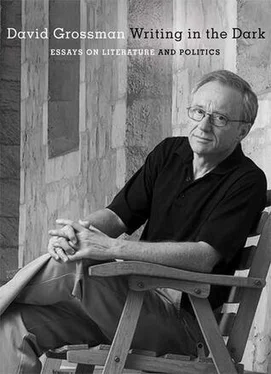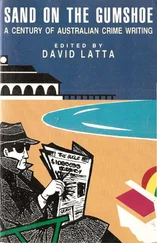This void does not remain empty. It quickly fills up with apathy, cynicism, and above all despair — the despair that can fuel a distorted reality for many years, sometimes generations. The despair that one will never manage to change the situation, never redeem it. And the deepest despair of all — the despair of human beings, of what the distorted situation ultimately exposes in each of us.
I feel the heavy price that I and the people around me pay for this prolonged state of war. Part of this price is a shrinking of our soul’s surface area — those parts of us that touch the violent, menacing world outside — and a diminished ability and willingness to empathize at all with other people in pain. We also pay the price by suspending our moral judgment, and we give up on understanding what we ourselves think. Given a situation so frightening, so deceptive, and so complicated — both morally and practically — we feel it may be better not to think or know. Better to hand over the job of thinking and doing and setting moral standards to those who are surely “in the know.” Better not to feel too much until the crisis ends — and if it never ends, at least we’ll have suffered a little less, developed a useful dullness, protected ourselves as much as we could with a little indifference, a little repression, a little deliberate blindness, and a large dose of self-anesthetics.
The constant — and very real — fear of being hurt, the fear of death, of intolerable loss, or even of “mere” humiliation, leads each of us, the citizens and prisoners of the conflict, to dampen our own vitality, our emotional and intellectual range, and to cloak ourselves in more and more protective layers until we suffocate.
Kafka’s mouse was right: when your predator closes in on you, your world does get smaller. So does the language that describes it.
From experience I can say that the language used by the citizens of a conflict to describe their situation becomes flatter and flatter as the conflict goes on, gradually evolving into a series of clichés and slogans. It starts with the jargon invented by the systems that handle the conflict directly — the army, the police, the bureaucracy. The trend spreads into the mass media, which create an elaborate, shrewd language designed to tell their audiences the most palatable story (thereby erecting a barrier between everything the state does in the twilight zone of the conflict and the way its citizens choose to see themselves). The process eventually seeps into the private, intimate language of the citizens (even if they vehemently deny it).
The evolution is all too understandable: human language’s natural richness and its ability to touch on the finest nuances of existence can be truly hurtful in a state of conflict because they constantly remind us of the exuberant reality that we have lost, of its complexities and subtleties. The more hopeless the situation seems and the shallower the language becomes, the more public discourse dwindles, until all that remains are tired recriminations between the enemies or between political adversaries within the state. All that remains are the clichés we use to describe the enemy and ourselves — the prejudices, mythological anxieties, and crude generalizations with which we trap ourselves and ensnare our enemies. The world indeed grows smaller.
These thoughts are relevant not only to the conflict in the Middle East. In so many parts of the world today billions of people face some threat to the existence, the values, the liberty, and the identity of human beings. Almost every one of us faces his own threat, his own curse. Each of us feels — or can guess — how his unique “situation” may quickly become a trap that will rob his freedom, his sense of home in his country, his private language, his free will.
In this reality, we authors and poets write. In Israel and in Palestine, in Chechnya and in Sudan, in New York and in the Congo. There are times in my workday, after a few hours of writing, when I look up and think: Now, at this very moment, sits another author, whom I do not know, in Damascus or Tehran, in Kigali or Dublin, who, like me, is engaged in the strange, baseless, wonderful work of creation, within a reality that contains so much violence and alienation, indifference and diminishment. I have a distant ally who does not know me, and together we are weaving this shapeless web, which nonetheless has immense power, the power to change a world and create a world, the power to give words to the mute and to bring about tikkun —“repair”—in the deepest, kabbalistic sense of the word.
As for myself, in the works of fiction I have written in recent years, I have almost intentionally turned my back on the immediate, burning reality of my country, the reality of the latest news bulletin. I have written books about this reality in the past, and I have never stopped discussing it and trying to understand it through essays, articles, and interviews. I have taken part in dozens of protests and international peace initiatives. I have met with my neighbors — some of whom were my enemies — every time I thought there was any chance for dialogue. Yet over the past few years, out of a decision that is almost a protest, I have not written about these disaster zones in my literature .
Why? Because I wanted to write about other things, things no less important, things for which it’s hard to find the time, the emotion, and the total attention, while the near-eternal war thunders on outside. I wrote about a husband’s obsessive jealousy of his wife, about homeless children on the streets of Jerusalem, about a man and a woman who establish a private, almost hermetic language within their reverie of love. I wrote about the loneliness of Samson, the biblical hero, I wrote about the subtle and tangled relationships between women and their mothers, and between children and parents in general.
Roughly four years ago, when my second son was about to enlist in the army, I could no longer remain where I was. I was overcome with an almost physical sense of urgency and alarm that gave me no rest. I began then to write a novel that deals directly with the difficult reality I live in, a novel that describes how the cruelty of the external situation invades the delicate, intimate fabric of one family, ultimately tearing it to shreds.
“At the moment someone is writing,” says Natalia Ginzburg, “he is miraculously driven to forget the immediate circumstances of his own life … But whether we are happy or unhappy leads us to write in one way or another. When we are happy our imagination is stronger; when we are unhappy our memory works with greater vitality.”
It is hard to talk about yourself. I will only say what I can say at this time, from where I stand now.
I write. The consciousness of the disaster that befell me upon the death of my son Uri in the Second Lebanon War now permeates every minute of my life. The power of memory is indeed great and heavy, and at times has a paralyzing effect. Nevertheless, the act of writing creates for me a “space” of sorts, an emotional expanse that I have never known before, where death is more than the absolute, unambiguous opposite of life.
The authors who are here today know: when we write, we feel the world in flux, elastic, full of possibilities — unfrozen. Anywhere the human element exists, there is no freezing and no paralysis, and there is no status quo (even if we sometimes mistakenly think there is; even if there are those who would very much like us to think there is).
I write, and the world does not close in on me. It does not grow smaller. It moves in the direction of what is open, future, possible.
I imagine, and the act of imagination revives me. I am not fossilized or paralyzed in the face of predators. I invent characters. Sometimes I feel as if I am digging people out of the ice in which reality has encased them. But perhaps, more than anything, the person I am digging out at the moment is myself.
Читать дальше












